Esophageal Cancer in Rural India: A Rising Threat
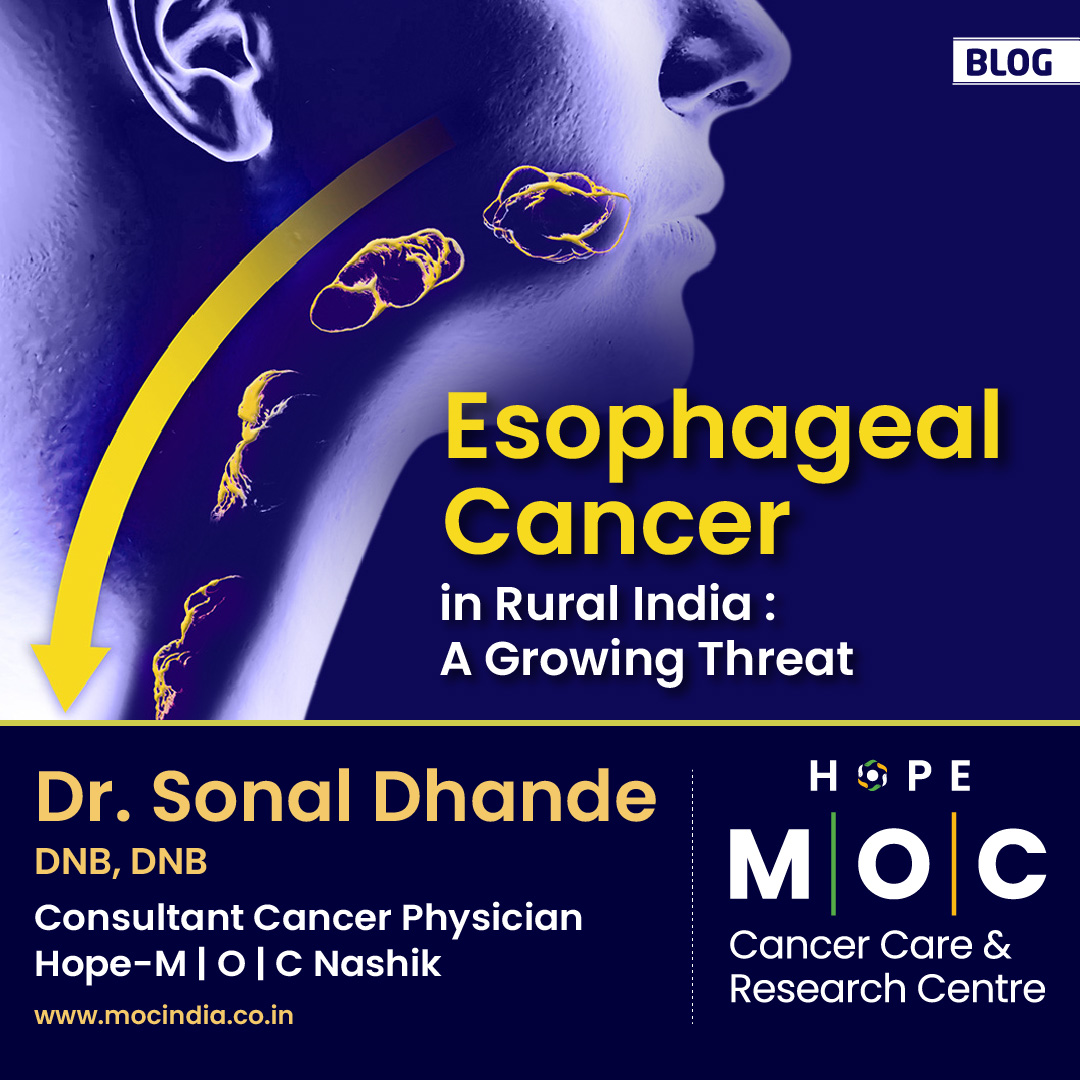


Esophageal Cancer in Rural India: A Growing Threat
Esophageal cancer, a malignancy affecting the esophagus—the tube connecting the throat to the stomach—is emerging as a silent yet formidable health challenge in rural India. While urban areas often dominate discussions on healthcare advancements, the burden of this disease in rural populations is steadily rising, attributed to a combination of unique risk factors, limited awareness, and inadequate access to medical resources.
Addressing this crisis and keeping in mind our mission to close the care gap, we aim to focus on this growing threat and advocate for targeted interventions.
In India, statistics reveal that esophageal cancer is now among the top cancers affecting both men and women, with a notable prevalence in rural regions. Studies indicate that the disease’s incidence is particularly high in the northeastern states and parts of northern India, areas characterized by agrarian lifestyles and socioeconomic challenges.
Unlike urban settings, where smoking and alcohol are often the primary culprits of esophagal cancer, rural India presents a distinct set of risk factors. The consumption of hot beverages like tea, chewed tobacco (gutka), and smoked meats, combined with poor nutrition, plays a significant role in driving this cancer’s prevalence. For instance, habitual intake of scalding-hot tea, a common practice in many rural households, has been linked to thermal injury of the esophageal lining, increasing cancer risk over time.
Nutritional deficiencies further compound the problem. Rural diets, often lacking in fresh fruits and vegetables due to economic constraints, limited availability, religious practices or simply ignorance can deprive individuals of essential vitamins and antioxidants that protect against cellular damage. Coupled with this is the widespread use of areca nut and tobacco products, culturally ingrained habits that expose the esophagus to potent carcinogens. These factors create a perfect storm, silently fueling esophageal cancer in rural communities least equipped to combat it.
The tragedy deepens when we consider the cancer care landscape in rural India. Early detection, a cornerstone of successful cancer treatment, remains elusive for most rural patients. Symptoms like difficulty swallowing, persistent heartburn, or unexplained weight loss are often dismissed as minor ailments or treated with home remedies until the disease progresses to advanced stages. Diagnostic facilities such as endoscopy are scarce, and even when available, they are concentrated in distant urban centres. For a farmer or labourer earning a daily wage, travelling for medical care means lost income—a cost many cannot afford. As a result, by the time patients reach a clinic, the cancer is often inoperable, leaving palliative care as the only option.
Addressing this growing threat requires a multi-pronged approach. Public health campaigns tailored to rural communities can raise awareness about risk factors and early symptoms, emphasizing the dangers of tobacco and hot beverages. Mobile screening units equipped with endoscopic tools could bring diagnostics closer to home, enabling earlier detection. Additionally, integrating cancer care into primary healthcare centres would bridge the gap between rural patients and specialized treatment.
Esophageal cancer in rural India is not just a medical issue—it’s a socio-economic challenge that demands urgent attention. It is essential that the government, private institutions and citizens work together to promote awareness, provide accessible diagnostics, and improve community-driven care so that we can take active measures in preventing or treating this silent killer and offer hope to those who reside in rural India.
Dr. Sonal Dhande
DNB (General Medicine)
DNB (Medical Oncology)
Speciality- Medical Oncologist & Hemato-Oncologist.
MOC Cancer Care & Research Centre,Nashik.
Latest Blogs
-
![Nidar Naari is a movement initiated by M|O|C Cancer Care & Research Centre]()
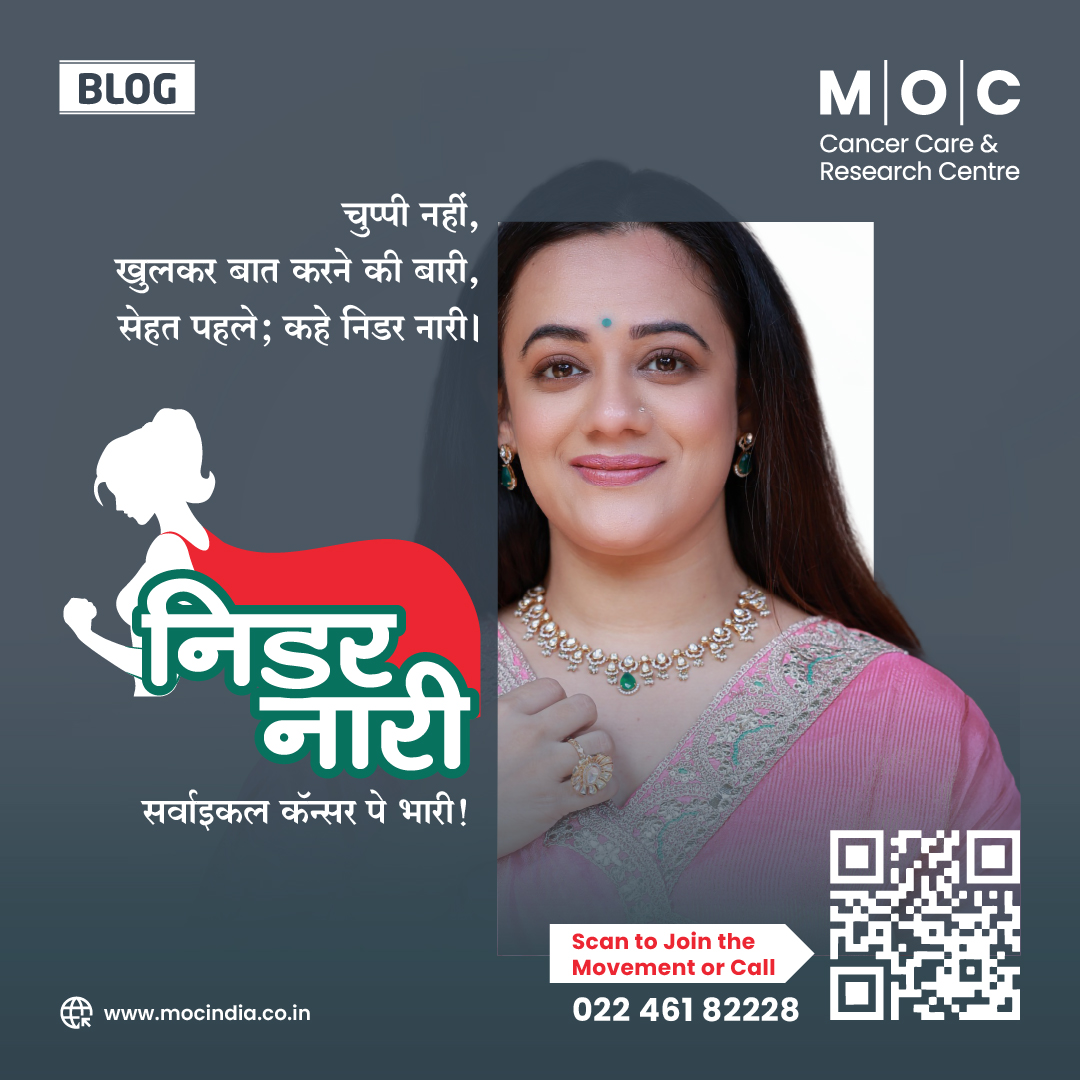
- 10th Feb, 2026
- Nidar Naari is a movement initiated by M|O|C Cancer Care & Research Centre
-
![Cervical Cancer Awareness Month- January 2026]()
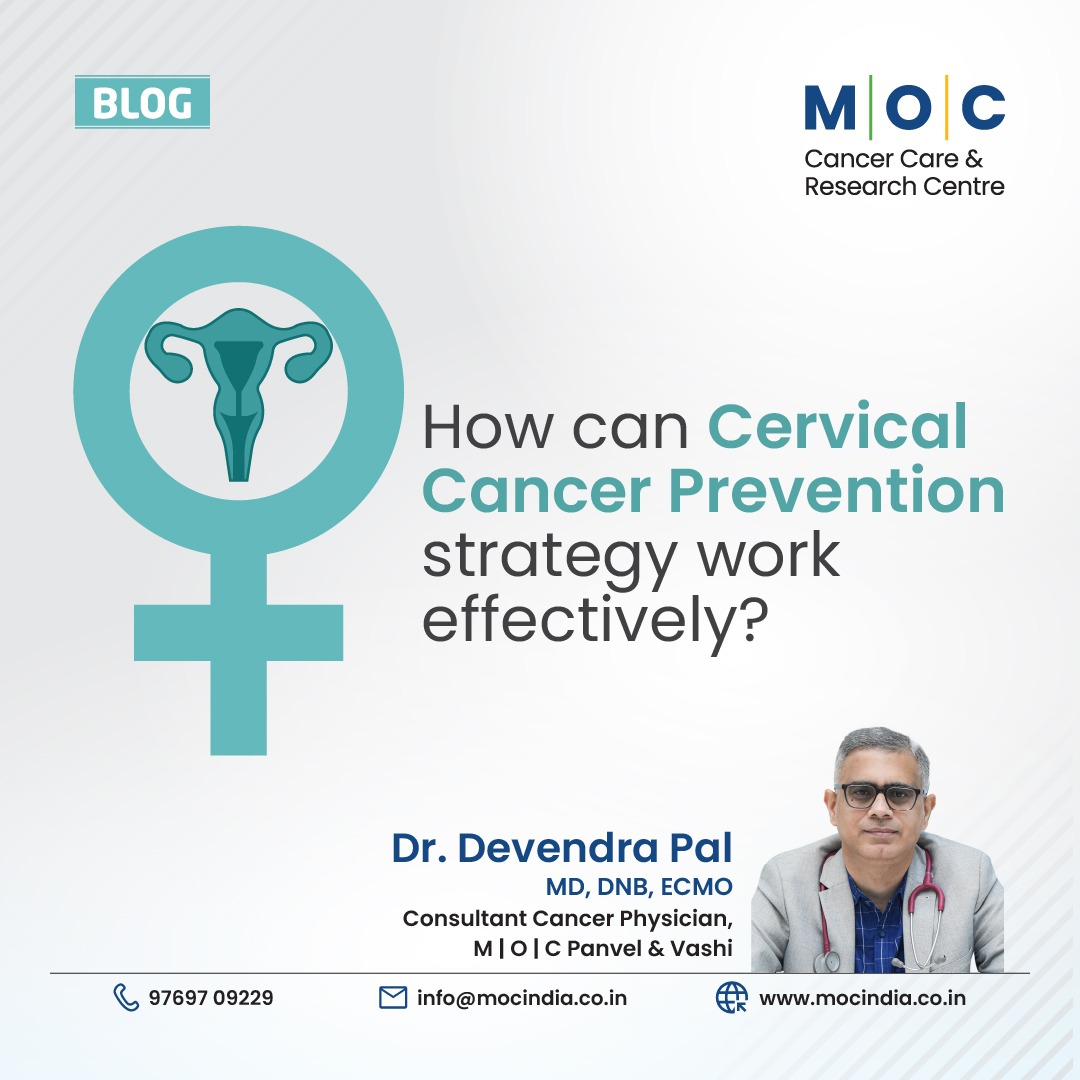
- 23rd Jan, 2026
- Cervical Cancer Awareness Month- January 2026
-
![Why Vaccinating Boys Against HPV is a Win for Everyone ?]()
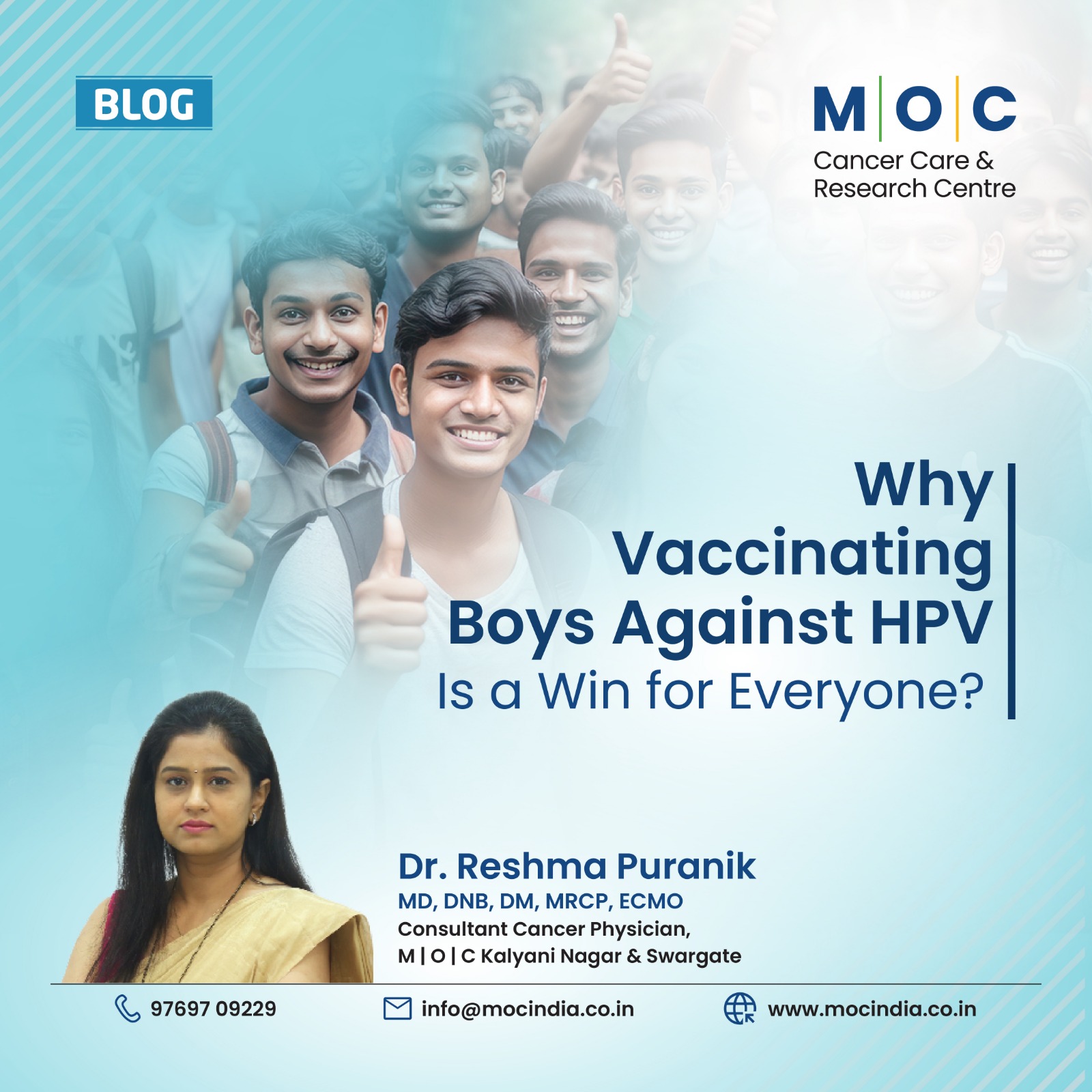
- 20th Jan, 2026
- Why Vaccinating Boys Against HPV is a Win for Everyone ?
-
![Are Pollution and Chemical Exposure Driving the Rise of Blood Cancer Cases in Children?]()
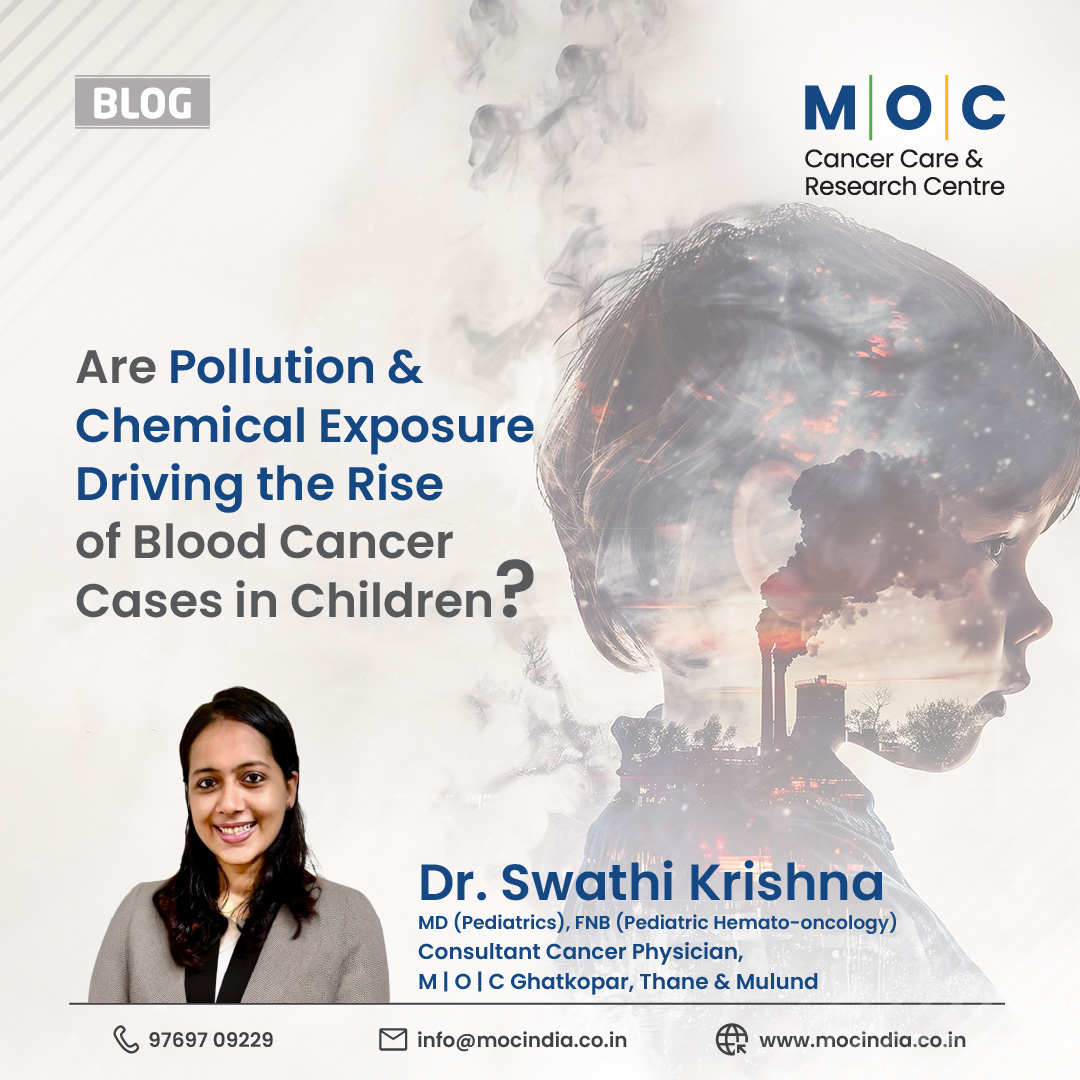
- 17th Jan, 2026
- Are Pollution and Chemical Exposure Driving the Rise of Blood Cancer Cases in Children?
-
![Significant Advancements in Cancer Treatment in 2025- Dr Kunal Jobanputra- M|O|C Kemps Corner and Mahim]()
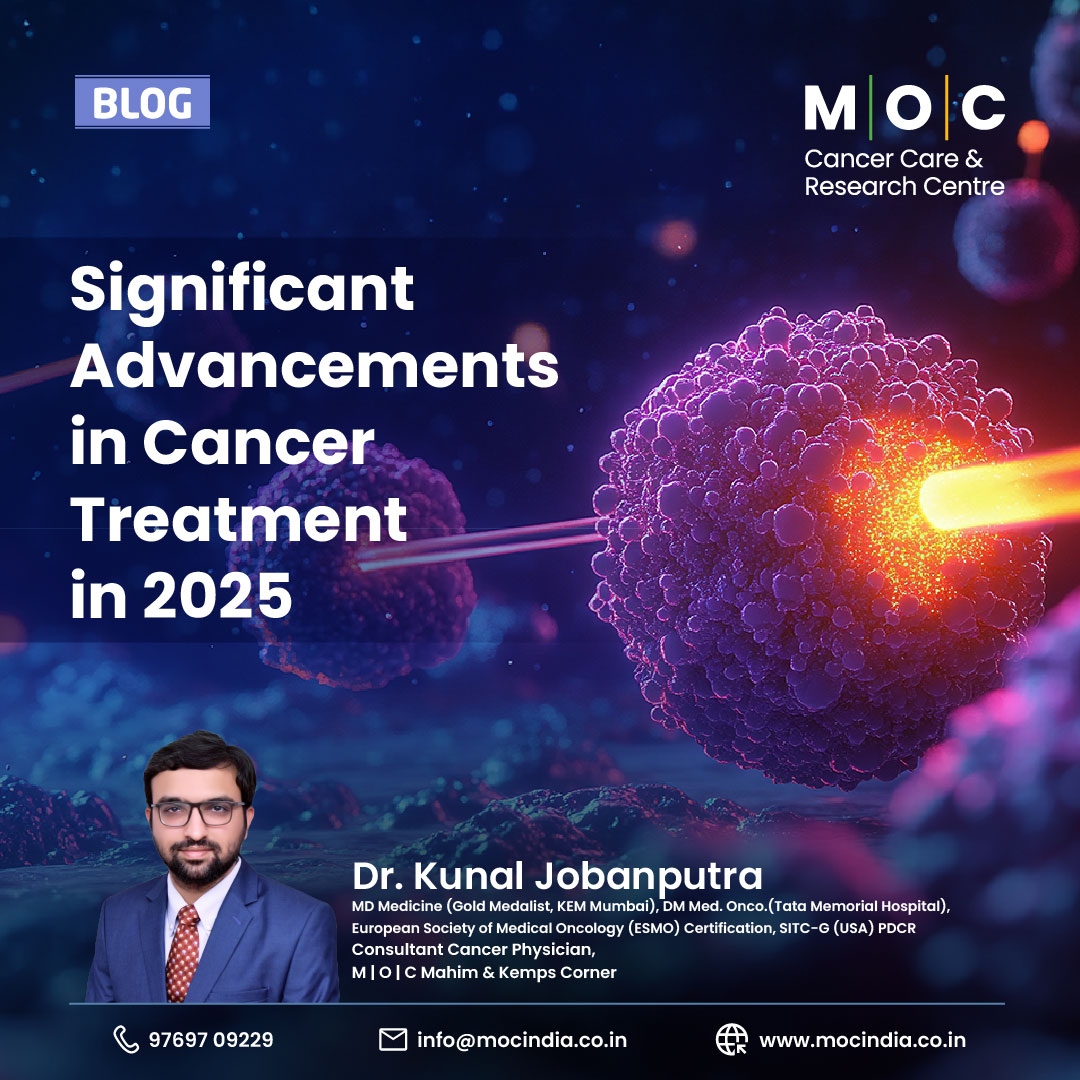
- 12th Jan, 2026
- Significant Advancements in Cancer Treatment in 2025- Dr Kunal Jobanputra- M|O|C Kemps Corner and Mahim
-
![Managing sleep disturbances during and after cancer treatment]()

- 11th Dec, 2025
- Managing sleep disturbances during and after cancer treatment
Book Your Appointment








